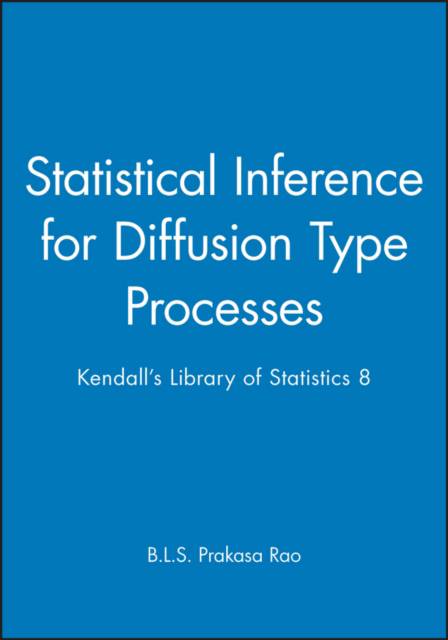
- Afhalen na 1 uur in een winkel met voorraad
- Gratis thuislevering in België vanaf € 30
- Ruim aanbod met 7 miljoen producten
- Afhalen na 1 uur in een winkel met voorraad
- Gratis thuislevering in België vanaf € 30
- Ruim aanbod met 7 miljoen producten
Zoeken
Statistical Inference for Diffusion Type Processes
Kendall's Library of Statistics 8
B L S Prakasa Rao
Hardcover | Engels
€ 191,45
+ 382 punten
Omschrijving
Decision making in all spheres of activity involves uncertainty. If rational decisions have to be made, they have to be based on the past observations of the phenomenon in question. Data collection, model building and inference from the data collected, validation of the model and refinement of the model are the key steps or building blocks involved in any rational decision making process. Stochastic processes are widely used for model building in the social, physical, engineering, and life sciences as well as in financial economics. Statistical inference for stochastic processes is of great importance from the theoretical as well as from applications point of view in model building. During the past twenty years, there has been a large amount of progress in the study of inferential aspects for continuous as well as discrete time stochastic processes. Diffusion type processes are a large class of continuous time processes which are widely used for stochastic modelling. the book aims to bring together several methods of estimation of parameters involved in such processes when the process is observed continuously over a period of time or when sampled data is available as generally feasible.
Specificaties
Betrokkenen
- Auteur(s):
- Uitgeverij:
Inhoud
- Aantal bladzijden:
- 366
- Taal:
- Engels
Eigenschappen
- Productcode (EAN):
- 9780470711125
- Verschijningsdatum:
- 24/05/2010
- Uitvoering:
- Hardcover
- Formaat:
- Genaaid
- Afmetingen:
- 156 mm x 234 mm
- Gewicht:
- 684 g

Alleen bij Standaard Boekhandel
+ 382 punten op je klantenkaart van Standaard Boekhandel
Beoordelingen
We publiceren alleen reviews die voldoen aan de voorwaarden voor reviews. Bekijk onze voorwaarden voor reviews.











